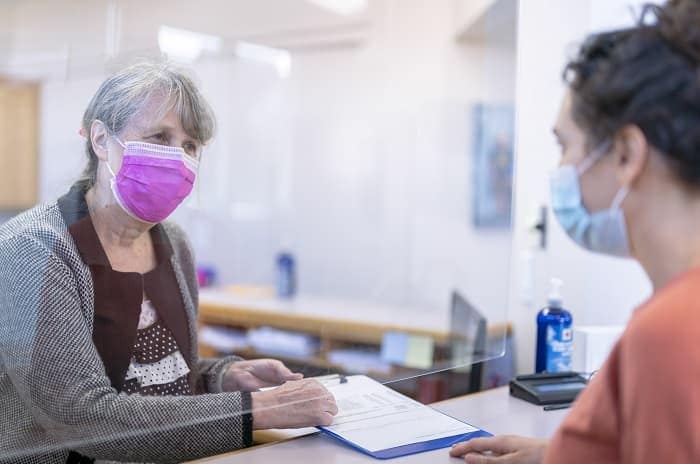Guam Makes Program Enrollment Easier During the Pandemic

Being able to enroll at a clinic was great for women. They could join the program and get screened for cancer on the same day.
On March 14, 2020, the governor of Guam declared a state of emergency in response to COVID-19. The Guam Breast and Cervical Cancer Early Detection Program, an award recipient of CDC’s National Breast and Cervical Cancer Early Detection Program, put its services on hold until May 1. Before the program could offer cancer screening services again, it had to make sure women could get screened safely.
Many people lost their jobs because of the pandemic. In July 2020, about 34,000 of Guam’s 168,000 residents had been laid off, furloughed, or had their work hours reduced. This led to money problems for many women in the Guam Breast and Cervical Cancer Early Detection Program or for the people they rely on to take them to their appointments.
Before the pandemic, women had to go to the program office to sign up for services. This process was changed to comply with social distancing measures. The program allowed women to sign up at one of its three partner clinics. Program staff answered questions about eligibility and enrollment by telephone and e-mail.
Being able to enroll at a clinic was great for women. They could join the program and get screened for cancer on the same day. The new process saved them from having to make a trip to a different office just to sign up before getting screened. It was also safer for both women and program staff.
From May 1 through June 29, 2020, 110 women signed up for the program at partner clinics. This number was higher than the number of women enrolled during the same time period a year before. During this time, the program provided 73 mammograms, 20 Pap tests, 17 human papillomavirus (HPV) tests, and other cancer screening and diagnostic services for free or at a low cost.
Women are more likely to get screened for cancer when they can enroll in the program easily. So the program plans to continue to allow eligible women to sign up at partner clinics after the pandemic is over.